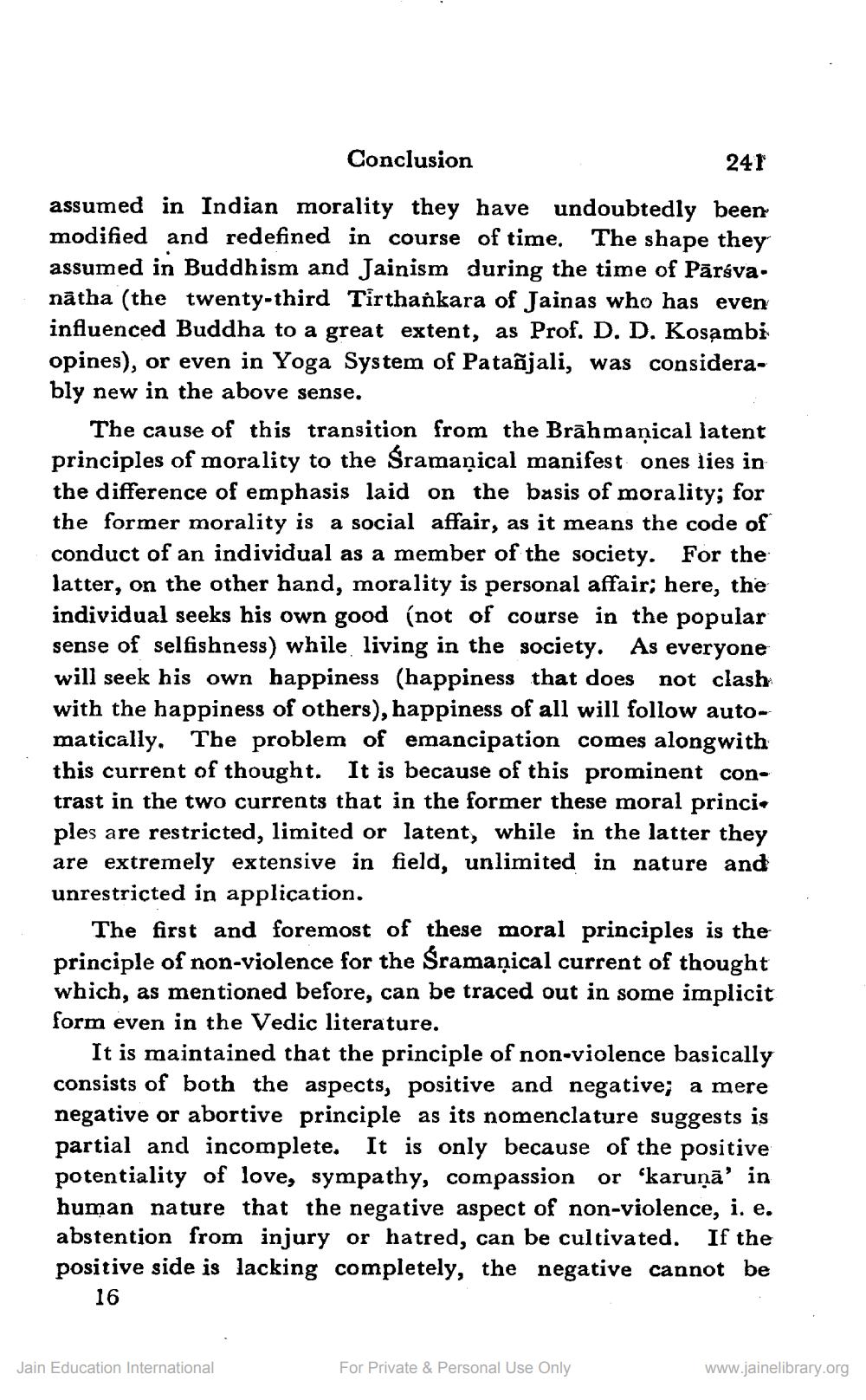________________
Conclusion
241 assumed in Indian morality they have undoubtedly been modified and redefined in course of time. The shape they assumed in Buddhism and Jainism during the time of Pārsvanātha (the twenty-third Tirthankara of Jainas who has even influenced Buddha to a great extent, as Prof. D. D. Kosambi opines), or even in Yoga System of Patañjali, was considerably new in the above sense.
The cause of this transition from the Brāhmaṇical latent principles of morality to the Sramaņical manifest ones lies in the difference of emphasis laid on the basis of morality; for the former morality is a social affair, as it means the code of conduct of an individual as a member of the society. For the latter, on the other hand, morality is personal affair; here, the individual seeks his own good (not of course in the popular sense of selfishness) while living in the society. As everyone will seek his own happiness (happiness that does not clash with the happiness of others), happiness of all will follow automatically. The problem of emancipation comes alongwith this current of thought. It is because of this prominent contrast in the two currents that in the former these moral princi. ples are restricted, limited or latent, while in the latter they are extremely extensive in field, unlimited in nature and unrestricted in application.
The first and foremost of these moral principles is the principle of non-violence for the Šramaņical current of thought which, as mentioned before, can be traced out in some implicit form even in the Vedic literature.
It is maintained that the principle of non-violence basically consists of both the aspects, positive and negative; a mere negative or abortive principle as its nomenclature suggests is partial and incomplete. It is only because of the positive potentiality of love, sympathy, compassion or ‘karuņā' in human nature that the negative aspect of non-violence, i. e. abstention from injury or hatred, can be cultivated. If the positive side is lacking completely, the negative cannot be
16
Jain Education International
For Private & Personal Use Only
www.jainelibrary.org




